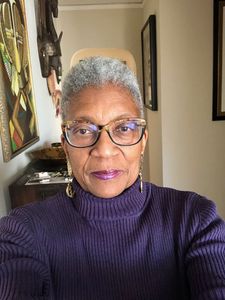 The public theology of Valerie A. Miles-Tribble. (VMT).
The public theology of Valerie A. Miles-Tribble. (VMT).
Patheos PT 5009
Professor Miles-Tribble asserts that the church can and should become a public change agent in an era of Black Lives Matter.
If you want more resources on Public Theology, click here.
We shall overcome. When?
TFP (Ted F. Peters). As a progressive who likes to sing, “We Shall Overcome,” I had thought that the Civil Rights Movement during the Martin Luther King era had passed never-go-back milestones. By any measure, giant steps toward human equality had been taken. I expected that we could continue to march steadily all the way to Dr. King’s dream.
What happened? The march gradually became a saunter. Then a wander. Then the marchers seemed to dissipate and go different directions. Exactly what “forward” could mean seemed to get forgotten.
Today, municipal police departments continue to murder unarmed black people. African Americans tremble in existential fear when an officer in blue pulls over their car for a conversation. Republican Party leadership makes no secret of its goal to make America white again. I repeat: what happened?
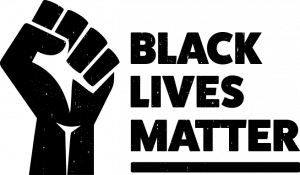 Racial justice is one of the most urgent matters on the public theologian’s agenda. Could our Christian churches and other faith communities become, once again, a change agent on behalf of the common good? “Yes!” is what my Graduate Theological Union colleague, Valerie Miles-Tribble, trumpets.
Racial justice is one of the most urgent matters on the public theologian’s agenda. Could our Christian churches and other faith communities become, once again, a change agent on behalf of the common good? “Yes!” is what my Graduate Theological Union colleague, Valerie Miles-Tribble, trumpets.
In this Patheos series, we have looked at the approach to public theology taken by scholars around the world such as Kang Phee Seng in Hong Kong, Rudolph von Sinner in Brazil, Binoy Jacob in India, along with Mwaambi Gideon Mbûûi‘s Drumbeat African Public Theology. We’ve introduced Americans such as Noreen Herzfeld, Katie Day, Robert Benne, Paul Chung, Karen Bloomquist, and other black pastors. Now it’s time to meet Valerie Miles-Tribble.
Meet Valerie A. Miles-Tribble
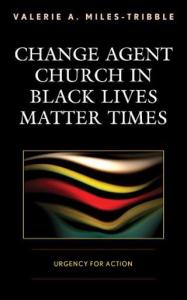 Valerie A. Miles-Tribble is Professor of Ministerial Leadership and Practical Theology at the Berkeley School of Theology and the Graduate Theological Union in Berkeley, California, USA. She serves as Chair of the Women’s Studies in Religion Certificate Program. Dr. Miles-Tribble was the 2021 Distinguished Faculty Lecturer at the GTU. She has recently published an important book which provides the occasion for this interview, Change Agent Church in Black Lives Matter Times.
Valerie A. Miles-Tribble is Professor of Ministerial Leadership and Practical Theology at the Berkeley School of Theology and the Graduate Theological Union in Berkeley, California, USA. She serves as Chair of the Women’s Studies in Religion Certificate Program. Dr. Miles-Tribble was the 2021 Distinguished Faculty Lecturer at the GTU. She has recently published an important book which provides the occasion for this interview, Change Agent Church in Black Lives Matter Times.
What is the definition of Public Theology with which you work?
VMT. First, in my book, Change Agent Church in Black Lives Matter Times: Urgency for Action (2021), I state that public theology is the public witness of faith in action. By that, I mean that public theology is a lived manifestation of a living God active in the divine encounters among humanity. In Change Agent Church, I write:
For leaders and congregants caught up in a swirling vortex of religio-political rhetoric, the timing seems pertinent to reflect on public theology: What is it and what are the theoethical links to social reform activism as discipleship ministry? . . . [For Christians], a public theology begins with a theology of Jesus in public ministry, through whom God is understood to demand justice and love or care for neighbor as foremost if we truly profess obedience to a triune God. . . Simply put, public theology is a visibly collective embodiment of our beliefs in lived relationship with each other. . . Public theology informs public justice witness because lived theology is public through our interactions. Our ministry praxis, individual and collective, is grounded by beliefs in a living God’s incarnate action on behalf of the diversity of human creation with considerable attention to the care for people marginalized by injustice (270).
These views also apply to daily interactions as laity or ordained clergy in churches, whether in the academy or in leadership roles or not.
Do you have a preferred way to promote the perichoresis between the church, the academy, and the wider culture?
VMT. Wow! I think we need to unpack a bit for readers to decipher the term “perichoresis” as a doctrinal look at the Trinity, which the Church writ large understands to be the triune nature of three coequal persons: Father, Son, and Holy Spirit in the oneness of the God-head; then, the particular beliefs about the existence of humanity and divinity in the same incarnate figure of Jesus. To borrow from the Black Church tradition’s declaration to “make it plain,” I decipher the posed question, as follows: If we understand God as Creator of the cosmos and all within it, how do we then witness the divine in one another as embodying the breathed Spirit of God even in the finiteness of our humanity? Furthermore, can the church represent the Gospel cornerstone if we do not uphold the teachings of Jesus who professed his identity as the “son of man” to convey the word of God as his paternal “Abba” while calling his disciples to await the spiritual anointing said to come upon his ascension? The Gospel, through Jesus, conveys a trinitarian message.
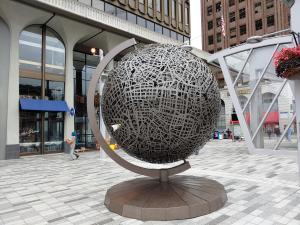 On the one hand, if we approach humanity with a belief that humans are created as children of God such that the divinity of God exists as a life force in one another, and if we believe that God calls us in all our diversities to live as one family of God, then, how can we reject another as unworthy of our respect and understanding? Thus, what we teach, worship and practice are intricately tied to what we believe and embody when we proclaim, as Christians, to follow Jesus. Beliefs held by other non-Christian religious traditions also have a transcendent moral vision of creation and human relationship within an ecological dependency on our existence’s natural and spiritual mutuality. Hence, in my book, I contend:
On the one hand, if we approach humanity with a belief that humans are created as children of God such that the divinity of God exists as a life force in one another, and if we believe that God calls us in all our diversities to live as one family of God, then, how can we reject another as unworthy of our respect and understanding? Thus, what we teach, worship and practice are intricately tied to what we believe and embody when we proclaim, as Christians, to follow Jesus. Beliefs held by other non-Christian religious traditions also have a transcendent moral vision of creation and human relationship within an ecological dependency on our existence’s natural and spiritual mutuality. Hence, in my book, I contend:
The aim of public theology is to engage God’s divinity-humanity interactions primarily for meaning, impact, and potential roles aligned with the ministry teachings of Jesus as basis for strategic counternarratives to resist the prevailing misuses of power. A public theological lens offers theoethical and praxeological worldviews of ecclesial and interreligious communities to foster relational efforts toward common ground for a shared moral vision to voice the equitable aims denied by oppressive structures” (271).
On the other hand, we also need to consider what public theology is not – that is to say, public theology is misunderstood if simply stereotyped to street-corner proclaimers or primary emphasis on politics to pigeon-hole us into taking sides with an “us vs. them” mentality. In the urgency of these times, public theological witness needs to engage collective analysis to raise consciousness about the ramifications of societal issues that impact us all. Justice and freedom aren’t simplistic theoretical concepts; instead, justice and freedom are collective theological, ethical, and spiritual goals to strive toward through “public restorative actions” (273). The Bible as a sacred text speaks to theology and ethics (hence, theoethics) to guide our worship and witness.
Can you discuss more on your focus and thesis in the book’s call for public witness: Why and how churches (and other religious communities) should become change agents in a time of debate about whether Black Lives Matter?
![]() VMT. Crucially, the book’s focus is to encourage faith leaders and congregants to participate as active change agents with insistent faith and hope to embody justice ministry in the public sphere. My proposal focuses a theoethical lens on “community building” by framing theological aims with a communitarian ethos “that centers the human need for communal relationships by addressing social issues through a collectivistic lens to foster the authentic valuing of personhood, families, and community” (44). I begin with a theoethical premise that all lives matter, yet I acknowledge that well-documented historical reality shows that Black lives have not mattered in this nation. The findings verify that the same criteria of humane mutuality, dignity, access to opportunity, and rights to personhood are analyzed. The mantra and hashtag #BlackLivesMatter created by the millennial generation of justice activists was adopted in the present struggle for human rights to insist that folks can’t honestly claim all lives matter until black lives matter.
VMT. Crucially, the book’s focus is to encourage faith leaders and congregants to participate as active change agents with insistent faith and hope to embody justice ministry in the public sphere. My proposal focuses a theoethical lens on “community building” by framing theological aims with a communitarian ethos “that centers the human need for communal relationships by addressing social issues through a collectivistic lens to foster the authentic valuing of personhood, families, and community” (44). I begin with a theoethical premise that all lives matter, yet I acknowledge that well-documented historical reality shows that Black lives have not mattered in this nation. The findings verify that the same criteria of humane mutuality, dignity, access to opportunity, and rights to personhood are analyzed. The mantra and hashtag #BlackLivesMatter created by the millennial generation of justice activists was adopted in the present struggle for human rights to insist that folks can’t honestly claim all lives matter until black lives matter.
The justice mantra that Black Lives Matter also challenges the lemming behavior of denial or disregard for personhood. The mantra does not exclude a recognition that all lives matter; rather, it calls attention to the reality that African-descended people have been the least-regarded group for dignity of our humanity. Hence a theoethical premise of the mantra signifies that the lives of marginalized Black folk are among the other groups of color in the human family who also should matter (162).
Healing Requires Listening
In effect, I link my premise theologically and ethically to God’s transcendent call for our collective efforts to address the ideological divisions fueling racialized tensions. I contend that healing can only begin when we listen deeply and authentically to each other, including the courage to acknowledge how past and present structural oppressions have been operative in this country. Rather than vehement denial or restricting voices by censoring and burning books, we could start by recognizing the ways that certain ethnic groups or economic classes still experience different types of marginalizing and systemic barriers. At present, these backlash responses of self-identified white conservatives might stem from guilt, anger, and fear; therefore, we also need to recognize how ecclesial roles and teachings have been complicit in exclusion rather than inclusion. To engage in public witness, how many congregations deliberate about their identity to collectively address the needs of their broader community or city. I offer in-depth ideas for collective consideration in chapter one of Change Agent Church, where I note:
In most ecclesial settings, clergy leaders are the primary conduits of theological expression and the influencers of congregational identity. Change agent clergy leaders, thus need to link justice factors impacting congregational identity to faith responses at the forefront of biblical and theoethical discourse in order to link social reform activism to discipleship (88). . . Leadership roles guide congregant preparation, broached collectively under the rubric of theopraxis. Theopraxis is an epistemological process of learning and assessing to contextualize and conscientize in order to increase change agent public witness (110).
A Justice Ethos of Public Witness
 Generally, “epistemology” signifies the gathering of knowledge acquired to understand and apply our faith in God. Preparation requires shared stories to raise our mutual awareness and share in re-envisioning prophetic justice work as divinely inspired discipleship. “Change agents hold a transcendent role of theological praxis to connect discipleship to a restorative justice ethos by raising awareness of disparate needs in urban communities. . . In part, my theoethical premise is grounded in a Christian context to forward a missional purpose of public witness through change agent modes of resilient faith-in-action”(65). A justice ethos of public witness does not condone political acts of violent unrest, yet it resists status quo complacency.
Generally, “epistemology” signifies the gathering of knowledge acquired to understand and apply our faith in God. Preparation requires shared stories to raise our mutual awareness and share in re-envisioning prophetic justice work as divinely inspired discipleship. “Change agents hold a transcendent role of theological praxis to connect discipleship to a restorative justice ethos by raising awareness of disparate needs in urban communities. . . In part, my theoethical premise is grounded in a Christian context to forward a missional purpose of public witness through change agent modes of resilient faith-in-action”(65). A justice ethos of public witness does not condone political acts of violent unrest, yet it resists status quo complacency.
Urgently, community schisms impact us all. Elitist power brokers are perpetrators of economic, legislative, and judicial oppressions that harm families and constituencies. Such myopic efforts hinder or diminish a myriad of intergenerational and intercultural contributions to our society. It is important to note also that change agent roles are not limited to Christian public witness and should neither be the sole purview or responsibility of historically Black congregations nor relegated to Black communities to “fix the problems.” Interfaith leaders in European and immigrant congregations must share the commitment to healing and wholeness within and among varied segments through community collaboration. I submit that much can be learned from one another across the diversity of lived experiences.
A Theoethical Agenda of Public Witness
A theoethical agenda of change agent public witness invites diverse communities and interreligious traditions to center justice and uphold our shared humanity collaboratively. Thus, transcendent faith resists the evil of injustice.
In actuality, the imperialist oppression of Empire loomed throughout the Gospel as one factor in the religio-politics of religious temple leaders’ blind accommodation to the systemic powers of injustice for self-survival. . . Hence, the prophetic proclamation of Jesus through the words of Isaiah 61: 1-2, as reported in Luke, likely unnerved the listeners said to be amazed as all eyes were fixed upon him. . . In his words, “to let the oppressed go free,” is an explicit action in resistance to the existing structures. In contrast, Jesus chose a prophetic reading that critiqued injustice and appealed to another order – the reign of God (312).
However, people who historically enjoy the privileged benefits of the discriminatory legislative practices codified into the American infrastructure have begun to misappropriate those realities by identifying themselves as marginalized victims of the current public justice efforts. The reaction to the phenomena of politicized fear emphasizes fighting for privileged advantages that biblical justice tenets call us to relinquish if obedient to God’s call to “seek the welfare of the city” in Jeremiah 29 and to Jesus’ proclamation of Isaiah 61.
It seems that the overload of confusion and mayhem of social media has put our world on edge with a cacophony of trivia, twaddle, disinformation, fake news, conspiracy theories, hostility, and even terrorist recruitment. What opportunities or responsibilities does this present to the conscientious public theologian?
VMT. In the book, I identify and discuss ethical change agent values that could inform collaborative action steps, which distinguish positive life-giving efforts from death-dealing selfish agendas. Prophetic public witness calls for resistance to crowd mentality that I call lemming-like behavior when people uncritically follow the self-aggrandizing plans of media pundits. A sense of entitlement further emboldens lemming behavior, especially when faith gets coopted by religio-politics that cloak secular attempts to thwart the arc of justice.
On the one hand, the Gospel charges us to listen “with ears to hear” and discern. Authentic peace-building for harmonious outcomes should promote discerning awareness rather than overshadow or stifle critical questions for accountability to raise the needs of the most vulnerable. In effect, I suggest that “a public theology of justice, despite the lemming-like behavior of some, adheres to a divinely transcendent call that seeks from obedient listeners the risky prophetic commitment to lean in and grasp the covenantal witness of restorative justice, rather than obeisance to Empire, or disillusionment to wallow in frustration” (282).
The Conscientization of the Public Theologian
On the other hand, change agent work in public justice witness is distinguishable from lemming-like crowd follower behavior. Collaborative public witness discourse invites conscientization to recognize “when national rhetoric refers to restoration of America’s greatness, it neither speaks for people of color nor seeks the collective input of a democratic proletariat process” (413). Hence, conscientious public theologians who seek to engage with a genuine justice commitment to equity and inclusion must first need to commit themselves to critical self-reflection. Looking inward requires us to take stock of personal biases or underlying presumptions about other races, genders, faith traditions, and disparate economic factors that hinder the ability to engage openly and learn from one another. I suggest that deep critical self-reflection requires us to discern sincerity from sound bites. I urge that communal reflection is also necessary because accountability is crucial to tear down erected stereotypes.
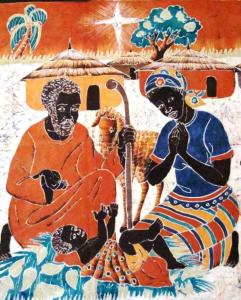 As a practical theologian committed to social reform activism as public witness, I relate the sacred text to theopraxis, or faith-in-action, in the present context of Black Lives Matter times (344) . . .Alas, because nothing is simple, if we are not boldly astute we might fall victim to a smokescreen of factious fights or competing interests among ideologues that detour our attention rather than focus our collective energies to listen for the Spirit of God moving us to challenge the cultural evil of injustice (399).
As a practical theologian committed to social reform activism as public witness, I relate the sacred text to theopraxis, or faith-in-action, in the present context of Black Lives Matter times (344) . . .Alas, because nothing is simple, if we are not boldly astute we might fall victim to a smokescreen of factious fights or competing interests among ideologues that detour our attention rather than focus our collective energies to listen for the Spirit of God moving us to challenge the cultural evil of injustice (399).
In Change Agent Church, I urge that being or not being change agents requires discernment. I pray for the discerning wisdom to hear God’s call with faith to serve as a prophetic voice. I hope my actions help to bring unifying hope despite the din and clamor of violently divisive hate rhetoric. I believe that change agent churches can be spiritual guides to help create a justice future that changes America’s downward spiral toward fascist controls.
How do you and colleagues in African American churches feel about political debates over Critical Race Theory (CRT)?
VMT. The current debate in American politics has purloined an area of study in the fervor of media coverage that, in my view, is erroneous. Critical race theory (CRT) offers a theoretical analysis of the identity politics and sociological dynamics in historical and present structural inequities. CRT has its place as interdisciplinary study for intersectional analysis that must occur at higher levels of education from law schools to health and medical schools and in the socio-anthropological scholarship. A pedagogical charge to delve into root causes of relational and systemic disparities is integral to examine impact on legal and moral codes, health care delivery, and educational systems. In my view, CRT has been coopted through misappropriation of the term to justify the already extant agendas to undermine justice and freedom sensibilities.
A pretense of such efforts is fallacious since critical race theory in law schools aimed to apply a legal lens to moral issues of intersectional disparities. At present, we witness erratic state-legislated attempts to restrict books, limit historical facts, and censure educational dialogue in classrooms under the guise of protecting white children from racial guilt. The risk of broader implications includes barring academic scholarship, restricting church liturgies, and further marginalizing voices in the public sphere. The severe impact of theological and ethical ramifications comes when there is urgent need to train faith and justice leaders for public witness in graduate theological academies. Nevertheless, such political maneuvering must not thwart analytical engagement as public witnesses.
Suffice it to say that an entire article should be devoted to the debate about critical race theory (CRT) to help people understand how inappropriate cooptation and censure are when a groundswell of voices needs to raise collaborative public justice witness. In the context of this short section, I offer some views. However, I cannot presume to speak on behalf of African American churches, nor can I provide a good overview of the numerous brilliant responses of diverse colleagues. Equally crucial for self-identified progressive voices is astutely recognizing how public figures use coded language as soundbites. In effect, justice-sounding terminology can mislead well-intentioned efforts to be justice-minded.
No! to Colorblindness
To wit, I close my observations by inviting further dialogue about the astute questions posed here and in your January 12 Patheos blog, entitled, “Progressive Race Narrative 2.” In the section “The Problem of Language,” the discussion of colorblindness sparked my interest in its usage in public discourse. I concur that you noted its hypocritical use when you stated:
 TFP. In public discourse, the term, colorblindness, has been disparaged for its hypocritical usage. It has been used to hide institutional racism. But, I believe it should be retrieved, cleaned, and polished. We need the concept of colorblindness in order to construct a vision of the future we want. Colorblindness or a similar term is necessary if we are to unlock the tiger now confined to the cage the progressive narrative has locked us into.
TFP. In public discourse, the term, colorblindness, has been disparaged for its hypocritical usage. It has been used to hide institutional racism. But, I believe it should be retrieved, cleaned, and polished. We need the concept of colorblindness in order to construct a vision of the future we want. Colorblindness or a similar term is necessary if we are to unlock the tiger now confined to the cage the progressive narrative has locked us into.
VMT. As a practical theologian and womanist scholar, I attend to the theoethical analysis of oppression embedded in our civic and ecclesial doctrinal lenses. I resist retrieving, cleansing, or polishing the concept of colorblindness because we should not aim for blindness as a relational state as people of justice. As you stated, some call America a colorblind society and attempt to deny institutional racism. Similarly, the coined phrase “All Lives Matter” sounds admirable, but for many, the words seek to counter or dissuade the validity and premise for the mantra “Black Lives Matter.”
Conceptually, the state of colorblindness claims to appreciate the inward qualities of a person while downplaying the outward appearance, extensively to avoid seeing one another through the prism of skin color as in race or ethnicity. In essence, careful analysis reveals an ideological notion of blindness, as awareness or a lack thereof, still signifies the intentionality of “not seeing,” which is the very thing that justice advocates abhor as an unethical practice. To be seen is to recognize and respect, not negate, the intersections of identity; hence, an ethos of Black Lives Matter runs counter to a false premise of colorblindness that presumes ignoring parts of another’s identity. Thus, I can’t entirely agree with the aims of colorblindness; rather, a credo among justice-minded faith leaders is to acknowledge another with the words, “I see you.”
Perhaps a well-intentioned effort of blindness risks diminishing the essential distinctions of identities that affirm who we are.
BIPOC, Intersectionality, BLM, and the Melting Pot
Let’s look at another example. The overuse of the term BIPOC to signify Black, Indigenous people of color, is a critique by Black activists and other cultural groups as attempts to conflate uniquely targeted subjugation that Blacks experience differently from other people of color. I raise and concur with the shared cultural responses to a lived reality that outward appearance cannot be hidden, and identities should not be ignored. An intersectional analysis calls for respect of identity, warranting recognition of diverse human beings and their vital contributions as the backbone builders of this nation. Other terms like the “melting pot” imagery also seek to diminish essential intersectional realities of identity into an innocuous puree rather than a vibrantly distinctive vegetable soup with each culture or group contributing to the pot. Terms must be critically assessed for their emanation from agendas to negate the positives of a pluralistic society despite the guise of such coded language to appear to aim toward inclusion.
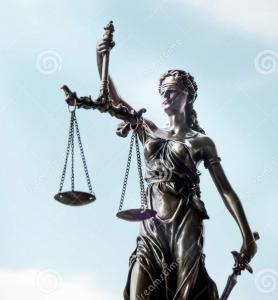 Instead, the factors at work in the blindness of discrimination are manifested when an ideology of nationalism stresses conformity over culture, homophobia stresses hypermasculinity over gender or non-binary sexuality, and when xenophobia stresses patriotism as Eurocentric acculturation over all else. Hopefully, relational engagement evolves with more justice awareness or consciousness instead of oversimplified and patronizing preoccupation with attempts at blindness. Imagine how profoundly affirming our communities could be if people embodied a civic and faith commitment to foster harmonious relational respect with each other.
Instead, the factors at work in the blindness of discrimination are manifested when an ideology of nationalism stresses conformity over culture, homophobia stresses hypermasculinity over gender or non-binary sexuality, and when xenophobia stresses patriotism as Eurocentric acculturation over all else. Hopefully, relational engagement evolves with more justice awareness or consciousness instead of oversimplified and patronizing preoccupation with attempts at blindness. Imagine how profoundly affirming our communities could be if people embodied a civic and faith commitment to foster harmonious relational respect with each other.
“Change agent leaders and congregants work to deepen shared identity through each preparation process by accord on ways to collaborate amid the distinctive contextual views of community groups” (90). As always, I invite further dialogue on the observational thoughts that I offer. Thank you for the opportunity to join this urgent discourse. Blessings, VMT
Conclusion
TFP. The black church has already been a change agent. It was the trumpet blast of the black church three quarters of a century ago that awakened America and the world from its racist slumber. It was the drumbeat of the black church that led our society’s march toward a new understanding of what freedom could mean. It was the hermeneutic of the black church that applied both the Bible and the U.S. Constitution to all persons.
As mentioned above, my progressive friends find it difficult to explain to me just why our society today is retarded by resistance and even setbacks. The wheels of human progress continue to roll toward justice, to be sure. But they grind and spin in the mud of racial recalcitrance in ever unpredictable forms.
My own analysis is to aver that sin is still with us in the form of prejudice. But, alas, this is too general to provide much in the way of analytical let alone explanatory help. Appeal to sin to explain racial scapegoating may blunt progressive naivete, to be sure. But it falls short of explaining the “why?” Why does racist resistance take the particular form we witness today?
In the meantime, public theologians everywhere should thank Valerie Miles-Tribble for keeping the torch lit.
▓
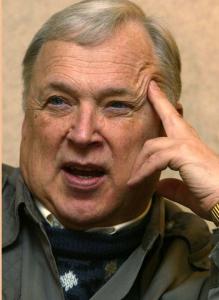 Ted Peters is a Lutheran pastor and emeritus seminary professor. His one volume systematic theology is now in its 3rd edition, God—The World’s Future (Fortress 2015). He has undertaken a thorough examination of the sin-and-grace dialectic in two works, Sin: Radical Evil in Soul and Society (Eerdmans 1994) and Sin Boldly! (Fortress 2015). Watch for his forthcoming, The Voice of Public Christian Theology (ATF 2022). See his website: TedsTimelyTake.com.
Ted Peters is a Lutheran pastor and emeritus seminary professor. His one volume systematic theology is now in its 3rd edition, God—The World’s Future (Fortress 2015). He has undertaken a thorough examination of the sin-and-grace dialectic in two works, Sin: Radical Evil in Soul and Society (Eerdmans 1994) and Sin Boldly! (Fortress 2015). Watch for his forthcoming, The Voice of Public Christian Theology (ATF 2022). See his website: TedsTimelyTake.com.
▓














